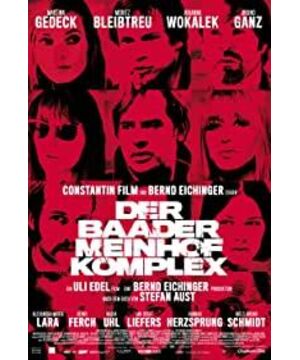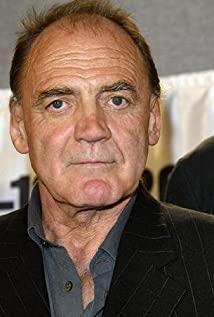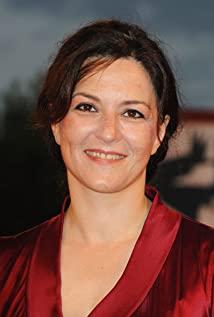After continuing the revolution in Russia, Germany overthrew Wilhelm II and established the Weimar Republic in November in the 1920s. The growing German Communist Party was not banned by the Nazis until the parliamentary arson. After World War II, the Soviet-occupied German Communist Party and the Social Democratic Party in the east were combined, and the German Communist Party in the west was not banned by the Federal Republic of Germany until 1956 when the Cold War intensified, and it was restored again in 1968. These are enough proof that the soil in Germany has also maintained a high enthusiasm during the revolution. The German youth in the 1960s grew up in an era of complicated social backgrounds. They complained that their parents did not fight under the rule of the Third Reich and the weakness of silence (which can be reflected in the novel "The Reader"), and at the same time mixed The complex emotions of the defeat of the United States in the two world wars required them to seek to elude the Nazis' shadow over Germany and to be independent of the special position of capitalist society.
The 1960s and 1970s were when the left-wing trend swept the world. The unpopular Vietnam War in the United States severely weakened the reputation of Western powers led by the United States. The Soviet-led Hungarian incident and the invasion of Czechoslovakia also caused great controversy. Che Guevara, who fought guerrilla warfare in Bolivia, was executed by the CIA, and the black civil rights leader Martin Luther King was assassinated, which aroused great repercussions from the youth of society at that time. The characteristics of that era, young people walked together with the responsibility of reshaping the social system and cared about all kinds of injustice, oppression and resistance that were happening all over the world. The so-called "united world proletariat". From the blacks, the women's rights movement, the 8-hour work day, the social welfare system, and the continuous promotion of the left can not be said to be without a huge effect. However, the protests and pure declarations and propositions that stayed on the streets can no longer meet the radical goals of individual ultra-leftists. Therefore, they believe that some sensational events need to be created to attract the attention of the government to their voices, so this group of people Become a "revolutionary lifeblood", unscrupulously creating terror to seek social progress (called "liberation" in their language), the RAF group (Red Army Faction, Red Army faction) is a terrorist of this type, to revolutionize In the name of life.
During the 28-year armed struggle (May 14, 1970-April 20, 1998), the RAF Group has assassinated successively including the president of Deutsche Bank, the president of Volkswagen, and the president of Siemens, Germany The captain of the Lufthansa Airlines plane waited for 34 people and injured hundreds of people. After the leaders of its organization Badr and Mainhoff were captured by the Federal Government and imprisoned in Steinheim Prison in 1972, the rest of the party can still organize the kidnapping and killing of the chairman of the Employers’ Federation Schlei from September to October 1977. Er, was later called the "Germany Autumn Incident."
Like many noisy terrorists, the formation of the RAF group is closely related to the background of the times. Most of them are well-educated college students and intellectuals. One of the leaders of the RAF group, Yurik Mainhoff, has personally experienced the student movement and made many sharply criticized comments by the Federal Government. In the film A detail shown in the article: RAF robbed several banks to obtain funds for activities, but in order to eliminate outside doubts about their actions, they published a public statement after researching, indicating that they robbed the bourgeoisie of "unjust money", "replacement The people regain the property plundered by capitalism", this is "expropriation in the name of revolution." And the demands made in their terrorist actions, such as asking the authorities to "stop slandering the struggle against the third world." These all seem intriguing. The RAF Group, which does not give in to the authorities in the struggle for public opinion, is relying on advocating their familiar revolutionary theory to defend its actions, and unexpectedly won the public cheers after a series of heinous terrorist incidents. Like the Japanese Arab Red Army’s participation in terrorist attacks in the Middle East, the RAF Group also established solidarity with Islamic radicals in the Middle East. In the 1972 Munich tragedy case, one of the demands made by the Palestinian People’s Liberation Armed Forces for the hostage-taking was that To release Badr, Mainhoff and others. The sensation caused by the RAF group made the French philosopher Sartre go to the prison to visit Badr in person, which became a topic of a while. After meeting these people, Sartre said: "This group is dangerous to the left. It is not good for the left. People must distinguish between the left and the red brigade." This detail did not appear in the movie, and it seemed a bit regretful.
View more about The Baader Meinhof Complex reviews











